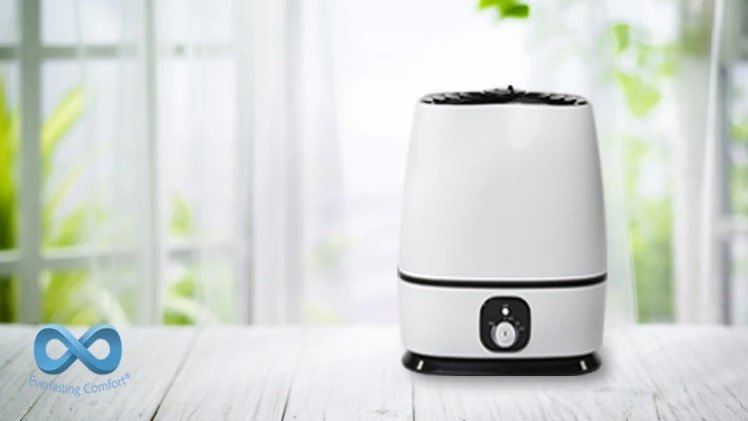During cold and flu season, many people turn to over-the-counter or prescription medication to relieve their symptoms. During these times, humidifiers for home are a great addition as they will keep you feeling comfortable while they improve the air quality in your home, which can help prevent catching or spreading germs. They also can help with symptoms of allergies by aiding in decongestion.
Why You Need a Humidifier
Humidifiers are designed to add moisture to your air. If you live in a dry climate or have recently used your heating system, this can be especially helpful. When the air is too dry, it can cause all kinds of problems including:
-A sore throat
-Dry skin and irritated eyes
-Dry sinuses that may lead to nosebleeds
-Chapped lips and cracked heels
A study by the American Lung Association found that using humidifiers during cold months lowered the risk of respiratory infections by about 20 percent. It also cut down on asthma symptoms for those who suffer from both conditions.
Humidifiers for homes are an inexpensive way to relieve cold symptoms and make breathing easier. They can also help prevent dry, stuffy noses and irritated throats. Plus, humidifiers can help with allergies, asthma and other respiratory problems. Humidifiers are an essential part of the home health care arsenal. They can help ease the symptoms of colds, allergies and sinus infections, but they also have many other benefits.
You may not know it, but most people who live in the United States don’t get enough humidity in their homes. Homes that are heated during the winter months often lack moisture because heaters remove moisture from the air as well as heat it up. If you live in a climate where temperatures drop below 40 degrees Fahrenheit (4 degrees Celsius) during the winter months, you need to run your humidifier every day while you’re sleeping. This will keep your home at least one-third as humid as it would be naturally — between 30 and 50 percent humidity — which is ideal for people with sinus problems or allergies.
How to Treat a Cold with a Humidifier
Humidifiers are a great way to treat a cold or allergies in your home, especially if you want to get relief from congestion. If you have family members that like to spend time in the house with the doors shut and windows closed during the winter, a humidifier could give them relief from sinus pain and congestion. If you’re experiencing allergies during the spring and summer months, it may be because of dry sinuses, so using a humidifier would be beneficial.
Humidifiers for the home such as the Ultrasonic Cool Mist Humidifier, have the added benefit of an essential oil tray so you could choose lavender or mint to help ease your symptoms.
Humidity makes it easier for your body to fight off colds because it can help you breathe more easily when you have congestion or a runny nose. When you breathe in humidified air, it warms up your nasal passages, which helps loosen up mucus and makes it easier for you to cough it up.
Humidifiers are a great way to help ease some of the congestion in your chest and nose when sick. Here are some other easy ways to help relieve your cold symptoms.
Other Ways to Treat a Cold
Resting, drinking plenty of fluids, and taking medications can help you recover from a cold. Here are some ways to ease your symptoms:
Take it easy when you have a cold. Resting helps your body fight the virus that causes your cold. You may need to slow down at work or school if you have a bad case of the sniffles.
Drinking plenty of water or other fluids will help thin out mucus and flush it out of your system more quickly. Avoid caffeine, alcohol and soda drinks that contain sugar because they can dehydrate you.
A humidifier can help ease cold symptoms and reduce decongestion. Coupled with plenty of rest and liquids, you should feel back to normal in a few days. You’ll be glad that you thought ahead and planned for cold and flu season when you are sleeping soundly. Choose a humidifier that runs quietly and doesn’t require a lot of additional parts such as filters. Pick a humidifier with a large tank so you don’t have to refill it too often. Finally, choose the humidifier for your home that aligns with your specific needs. In the end, you will most likely use it every night during the winter and you’ll want one you can rely on.

